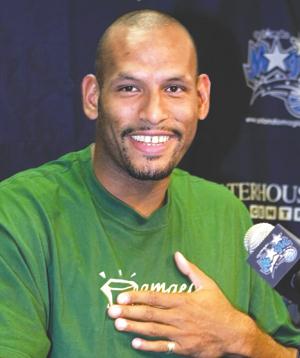The Olympic Games are full of special moments for athletes who have battled for years to gain respect in their particular sports. For gay athletes, one aspect of the Vancouver Games that stood out was Pride House, an inclusive, positive space that provided a place for athletes and coaches to hang out and take in the Games regardless of nationality or sexuality.
London, the 2012 host of the Summer Games, hoped to duplicate that success, but in the absence of funding pulled the plug on a similar safe space last month. Beyond Pride House, one prominent British lawyer doesn’t believe organizers are doing enough to uphold the values of the Olympics when it comes to queer inclusion.
“One thing I think the Olympics has never adequately addressed is discrimination on the basis of sexuality,” Mark Stephens tells Xtra in a phone interview. He says the argument that the Games are not an appropriate venue to make a political statement is silly; the International Olympic Committee (IOC) has explicitly gone after racial and gender discrimination in the past. He cites the ban of apartheid-era South Africa and the 2000 exclusion of Afghanistan due to its treatment of women.
A fundamental tenet of the Olympics is access to sports for any individual who chooses to play and a feeling of safety while doing so. The IOC doesn’t seem to meet this standard when it comes to the number of athletes who feel comfortable being openly gay — only 10 out of 11,000 participants in the 2008 Beijing Games identified as gay or bisexual.
Stephens, who is also WikiLeaks founder Julian Assange’s lawyer, argues that this is a product of the macho world of sports, which is far from the ideal. “The onus is on the organizers to look to where the problems are,” he says. “No athlete should fear their sexuality.”
Clearly some do. At the professional level, basketball player John Amaechi came out only after retirement. He received support, but it was not universal — upon hearing the news, former NBA all-star Tim Hardaway said, “I hate gay people,” adding that he wouldn’t want to share a locker room with a gay player. Hardaway has since become an unlikely ally.
Since coming out in 2007, Amaechi has been an advocate for inclusiveness in sports as a remedy to these problems. The founder of a youth basketball league in England, he feels that holding sports to its vaunted standards is worthwhile: “I see my job as helping people transform the promises they make about sport — about how communities come together, Dad loves his kids — to drill down into these promises and deliver on them.”
Although Amaechi is on the diversity board for the London Games organizing committee, he has little love for the IOC. “The IOC is a dinosaur-ridden organization . . . They’re people who are just uncomfortable with the way the world has changed.”
While Amaechi tries to effect that change within Olympic structures, Stephens takes the critical outsider approach.
He suggests the London committee should make more statements asserting the importance of gay rights, as well as take tangible action to give those statements meaning: “Those athletes from countries that criminalize homosexuality should claim asylum on the grounds of their situation back home.” Stephens is also highly critical of England’s historic treatment of gay people, adding that the Olympics Games provide an opportunity to show how the country has improved. He thinks banning countries that continue to discriminate based on sexuality is one way to make that change happen.
While Stephens’s approach is unlikely to be adopted, it is provocative enough to get people to pay attention to the issue and think about how the Olympics must evolve to maintain its brand.
Amaechi argues there’s an appetite for this, noting that the London 2012 rainbow pins are the best-selling Olympic pin souvenirs. He adds he doesn’t really care about the medal count; so long as values are met in meaningful ways, he’ll consider that a success.
Achieving that will be a marathon that goes beyond one Olympic Games. Highlighting the difficulty of this goal was a recent court ruling in Russia, where Sochi will host the 2014 Winter Games; the Russian government rejected the proposed Pride House outright. A judge upheld the decision on the grounds that the Pride House mission “undermines public morals and is at odds with national policy on the family, motherhood and children.”
The motto for the 2012 Games? Inspire a generation.

 Why you can trust Xtra
Why you can trust Xtra


